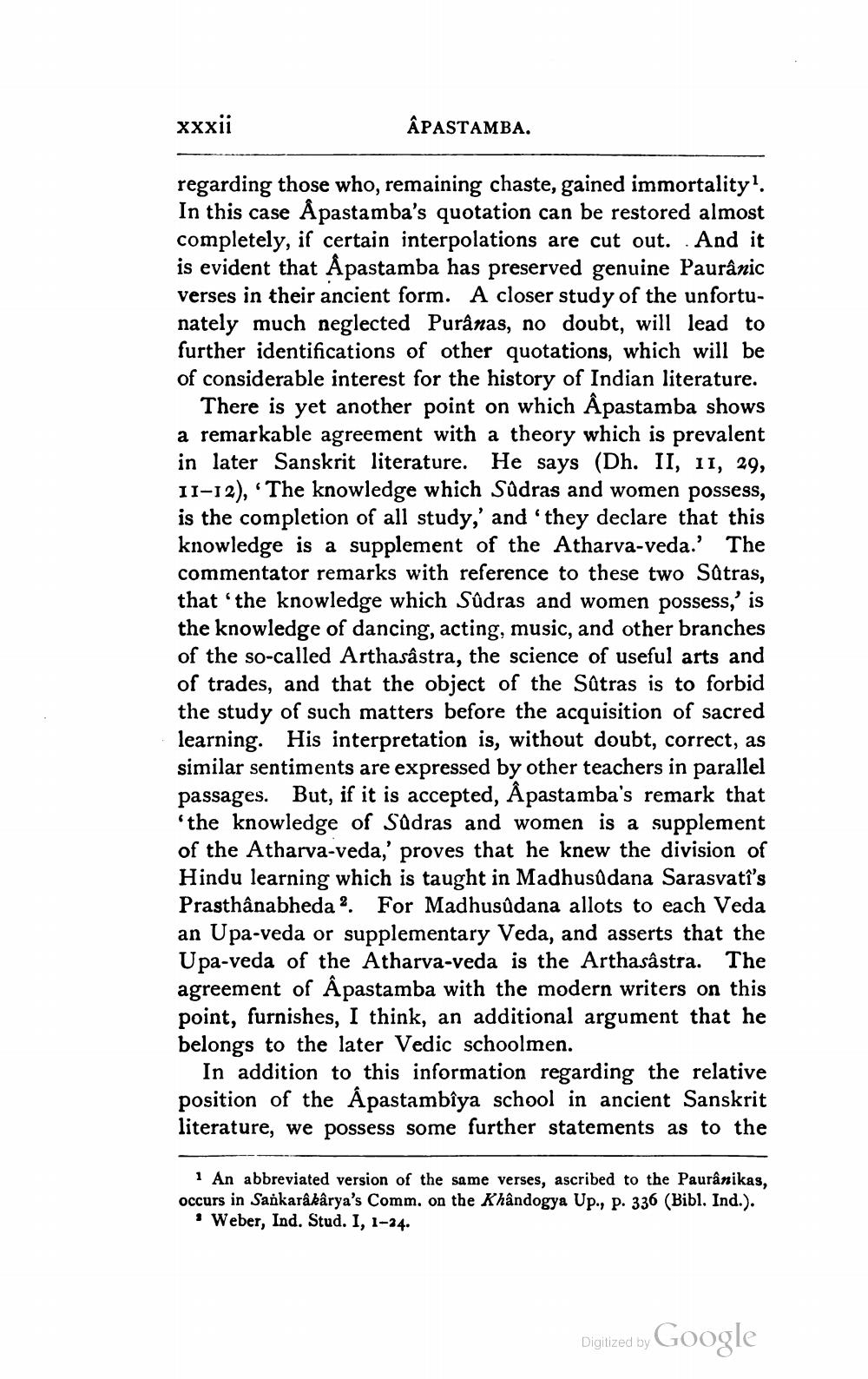________________
xxxii
ÂPASTAMBA.
regarding those who, remaining chaste, gained immortality1. In this case Âpastamba's quotation can be restored almost completely, if certain interpolations are cut out. And it is evident that Âpastamba has preserved genuine Paurânic verses in their ancient form. A closer study of the unfortunately much neglected Purânas, no doubt, will lead to further identifications of other quotations, which will be of considerable interest for the history of Indian literature. There is yet another point on which Âpastamba shows a remarkable agreement with a theory which is prevalent in later Sanskrit literature. He says (Dh. II, 11, 29, 11-12), 'The knowledge which Sûdras and women possess, is the completion of all study,' and 'they declare that this knowledge is a supplement of the Atharva-veda.' The commentator remarks with reference to these two Sûtras, that 'the knowledge which Sûdras and women possess,' is the knowledge of dancing, acting, music, and other branches of the so-called Arthasâstra, the science of useful arts and of trades, and that the object of the Sûtras is to forbid the study of such matters before the acquisition of sacred learning. His interpretation is, without doubt, correct, as similar sentiments are expressed by other teachers in parallel passages. But, if it is accepted, Âpastamba's remark that 'the knowledge of Sûdras and women is a supplement of the Atharva-veda,' proves that he knew the division of Hindu learning which is taught in Madhusudana Sarasvati's Prasthânabheda 2. For Madhusudana allots to each Veda an Upa-veda or supplementary Veda, and asserts that the Upa-veda of the Atharva-veda is the Arthasâstra. The agreement of Âpastamba with the modern writers on this point, furnishes, I think, an additional argument that he belongs to the later Vedic schoolmen.
In addition to this information regarding the relative position of the Âpastambîya school in ancient Sanskrit literature, we possess some further statements as to the
1 An abbreviated version of the same verses, ascribed to the Paurânikas, occurs in Sankarâkârya's Comm. on the Khândogya Up., p. 336 (Bibl. Ind.). Weber, Ind. Stud. I, 1-24.
Digitized by
Google




